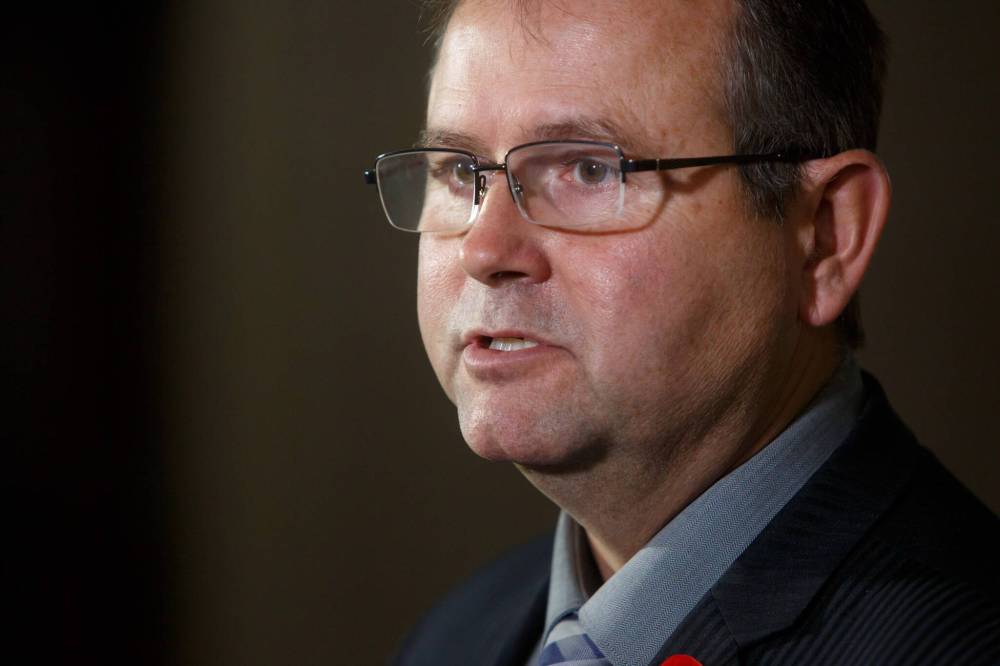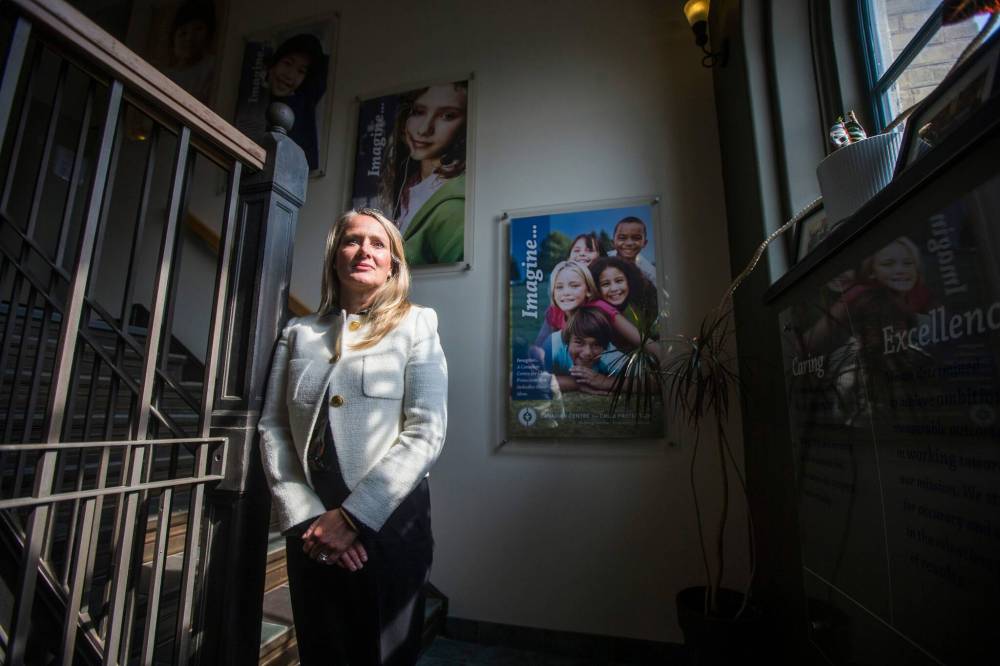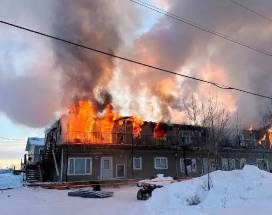Bill 35: Transparency or target practice? The union representing Manitoba’s teachers is arguing proposed legislation to root out professional misconduct declares “open season” on educators; the province is defending Bill 35 as a means to get predatory and poisonous adults out of the classroom
Read this article for free:
or
Already have an account? Log in here »
To continue reading, please subscribe:
Monthly Digital Subscription
$1 per week for 24 weeks*
- Enjoy unlimited reading on winnipegfreepress.com
- Read the E-Edition, our digital replica newspaper
- Access News Break, our award-winning app
- Play interactive puzzles
*Billed as $4.00 plus GST every four weeks. After 24 weeks, price increases to the regular rate of $19.95 plus GST every four weeks. Offer available to new and qualified returning subscribers only. Cancel any time.
Monthly Digital Subscription
$4.99/week*
- Enjoy unlimited reading on winnipegfreepress.com
- Read the E-Edition, our digital replica newspaper
- Access News Break, our award-winning app
- Play interactive puzzles
*Billed as $19.95 plus GST every four weeks. Cancel any time.
To continue reading, please subscribe:
Add Free Press access to your Brandon Sun subscription for only an additional
$1 for the first 4 weeks*
*Your next subscription payment will increase by $1.00 and you will be charged $16.99 plus GST for four weeks. After four weeks, your payment will increase to $23.99 plus GST every four weeks.
Read unlimited articles for free today:
or
Already have an account? Log in here »
Hey there, time traveller!
This article was published 14/04/2023 (1022 days ago), so information in it may no longer be current.
In the days after the provincial government introduced its transparency-focused teacher misconduct bill, tension was building behind the scenes.
The Manitoba Teachers’ Society, an influential union some 16,000 members strong, was not happy. It currently has oversight of misconduct involving its members, a power it appears the union will soon lose to an independent third party.
MTS took aim at the Progressive Conservatives’ bill, publicly deeming it “anti-teacher” and privately calling it “open season on teachers.”
Education Minister Wayne Ewasko, himself a teacher, suggested the union was running a campaign spreading inaccuracies.
MIKE DEAL / WINNIPEG FREE PRESS FILES Minister of Education and Early Childhood Learning Wayne Ewasko has suggested the Manitoba Teachers' Society is spreading inaccuracies regarding Bill 35.
“It’s unfortunate that some of the things they put out was misinformation… to scare some teachers into thinking the bill was something it was not,” Ewasko said in an interview with the Free Press.
He said he hoped the union was not intentionally sharing incorrect information, but noted MTS refused an invitation to sit down and review the bill until the opposition campaign was already well on its way.
But what does the bill actually represent? And one month later, where does MTS stand on it?
To find out, the Free Press reviewed Bill 35, the Education Administration Act (Teacher Certification and Professional Conduct) line by line, obtained documents showing what was being said behind closed doors, and sought feedback from child-protection and education experts, the education minister and the teachers’ union.
MTS president Nathan Martindale would not agree to an interview and provided a comment only via a brief emailed statement.
Bill 35 and a history of secrecy in Manitoba
“At the end of the day, the main purpose of the bill is to protect kids,” Ewasko said.
He said the bill puts in place long-overdue measures to better safeguard students.
Manitoba has lagged behind other provinces when it comes to making matters of teacher misconduct public.
Allegations against teachers in the province are currently dealt with at three levels: the school and school division, MTS and/or the Department of Education. The most serious cases may also be dealt with in the criminal-justice system.
Almost nothing about the discipline process or findings are shared with the public, as the Free Press discovered last year when it filed dozens of freedom of information requests with the province’s 37 school divisions seeking basic information about teacher misconduct. Nearly all of the requests were rejected.
The Canadian Centre for Child Protection reported last year that at least 252 current or former kindergarten-to-Grade 12 school personnel in Canada committed, or were accused of committing, offences against children between 2017 and 2021. The report singled out Manitoba for not releasing discipline records; the centre had to rely on media reports and legal cases for data.
It also highlighted the case of Kelsey McKay, a Winnipeg high school football coach who was charged with 30 sexual exploitation-related charges last year. Parents of students on the team told the Free Press they saw red flags regarding his conduct, which they reported to school authorities in previous years. His case is currently before the courts.
Bill 35 would make such matters public and could prevent abuse before it starts, advocates for the legislation say.
The proposed process for handling cases of misconduct, along with incompetency, begins with a government-appointed commissioner who reviews and investigates complaints from the public, with the power to dismiss those deemed “frivolous, vexatious, or trivial.”
An independent panel, made up of one teacher, one person nominated by the Manitoba School Boards Association and one public representative who is not a teacher, is then tasked with reviewing cases referred by the commissioner. The panel’s hearings are public, with exceptions, such as in cases where “intimate personal matters may be disclosed.” Written decisions from the panel will also be made public, though there may be exceptions.
Misconduct is defined as sexual abuse, sexual exploitation or sexual misconduct involving a student, physical harm to a student, “significant emotional harm” to a student and conduct “prescribed by regulation to constitute professional misconduct.”
The bill also includes the creation of a registry that includes the teacher’s name and any known previous name (with exceptions if the teacher requests the old name not be included and it’s not deemed “in the public interest” to share it), the date the teacher’s certificate was issued, its classification level and current status, records of any suspension or cancellation of the teaching certificate or any existing limitations or conditions imposed on it and any disciplinary action.
MTS’s position
The union has long opposed significant discipline reform, claiming changes would create confusion by setting up a parallel complaint process to one it already oversees.
MTS now says it’s not opposed to reform, it just doesn’t like Bill 35 in its current form.
“Keeping kids safe should not come at the expense of making teachers vulnerable,” read the initial statement from Martindale after the bill was introduced in March. “Bill 35 exposes teachers to frivolous and malicious complaints because of its overly broad definition of ‘misconduct.’”
ETHAN CAIRNS / WINNIPEG FREE PRESS FILES Nathan Martindale, vice president of the Manitoba Teachers Society said the union is not opposed to reform, it just doesn’t like Bill 35 in its current form.
The union has since raised additional concerns about the process being unfair to teachers. Among them: it’s unclear if union representation is allowed at hearings; competency should not be assessed by the independent panel; teachers should make up the majority of panel members; there should be a statute of limitations on complaints; people should not be allowed to file complaints anonymously; and the registry will breach teachers’ privacy.
The Free Press requested an interview and sent MTS a list of detailed questions seeking clarity on the issues raised but received only a statement from Martindale.
“Our purpose has never been to protect teachers who abuse children but rather to protect the process,” he wrote.
”And we agree there ought to be a better process than currently exists. We are sincerely interested in working together with government to meet the needs expressed in the intent of the legislation while also protecting fair processes for teachers.”
Tension behind the scenes
In an interview late last month, Ewasko said he had invited MTS to review the bill in detail but it didn’t accept the offer until after publicly, and privately, criticizing it he said.
“They really didn’t want to sit down until after the campaign had started,” he said.
MTS also sent Ewasko a letter stating the proposed legislation will make it “open season” on teachers.
“Bill 35 is touted as legislation to protect students, but it does nothing to prevent the abuse of a student by a teacher,” Martindale wrote in the letter, viewed by the Free Press.
“In such instances, a teacher is already held to account under the criminal justice system and through the established processes to suspend or cancel a teaching certificate.”
Martindale said the proposed legislation “will made it open season on teachers for anyone with a complaint, credible or not, and that is unacceptable.”
The two parties eventually met, and Ewasko said he is now hoping MTS sees “the good in the bill.”
Martindale wrote an op-ed published in the Winnipeg Free Press and Brandon Sun last month saying “there has been some misunderstanding” about the union’s position. He sought to set the record straight and focused on MTS opposition to the inclusion of teacher competency in the bill, adding that the discipline panel should be made up of more than one teacher.
“(I)n our view, competency is an employer responsibility because it falls under the purview of performance,” Martindale wrote. “Bill 35 seemingly absolves school divisions from this obligation and offloads it to an arms-length, government-appointed, third-party commissioner and a hearing panel composed of a school trustee, member of the public and a teacher.”
Refuting the arguments
Ewasko rejects MTS’s concerns that teachers will be left vulnerable. He says the proposed intake and investigation process is thorough and the commissioner has the power to weed out complaints deemed frivolous or made in bad faith.
“As a teacher, I would not do that to any of my co-workers,” he said. “This bill is set up so that there’s a process, that it’s an independent body to make sure that those that should not be teaching and working with students, are not.”
He said a union representative can be present during a hearing.
Cameron Hauseman, an assistant professor of education at the University of Manitoba, said it’s crucial to have diversity on the panel in order for the public to have confidence in the process.
MIKE DEAL / WINNIPEG FREE PRESS FILES Cameron Hauseman, an assistant professor with the University of Manitoba’s faculty of education is critical of the secrecy surrounding teacher misconduct investigations in Manitoba.
“We need to move beyond folks in a profession policing themselves,” he said. “Stacking the panel with educators who are sympathetic to other educators would (not be in the) public interest.”
Hauseman questioned how MTS currently handles the issues it fears will arise through this bill — teachers being exposed to frivolous or vexatious complaints — and why the union is concerned they will now slip through.
And he said there should be no debate on whether the panel should be assessing competence alongside misconduct.
“I would argue that not fulfilling obligations in classroom qualifies as misconduct,” he said.
“I would argue that not fulfilling obligations in classroom qualifies as misconduct.”–Cameron Hauseman, University of Manitoba assistant professor of education
The Canadian Centre for Child Protection agrees.
“They’re connected,” said Noni Classen, the centre’s director of education and support services.
Classen said it’s important the bill is sufficiently wide-ranging to expose situations that might present as something minor but, looked at in context, could signal risk of harm to a student.
“This is about finding individuals who are misusing access and who are predatory within schools,” she said. “It’s to be able to identify and bring things forward early.”
Some issues that don’t “yet hit the threshold of misconduct” can be viewed as unprofessional and a red flag, she said. Removing competency from the bill would mean those tasked with addressing concerns miss warning signs, she said.
MIKAELA MACKENZIE / WINNIPEG FREE PRESS FILES Noni Classen, with the Canadian Centre for Child Protection, weighed in on the lack of transparency with teacher misconduct..
Classen said it’s integral to not have time limits on complaints and to allow them to be submitted anonymously. Survivors of sexual assault often don’t report allegations until years later, and people may fear reprisal for doing so. She notes other jurisdictions with similar reporting processes have not seen an “abundance” of frivolous complaints.
And she rejected the argument that the definition of misconduct is too broad.
Classen, Hauseman and Ewasko all emphasized that the vast majority of teachers are thoughtful educators who care about students. The bill is designed to target the small number who present a risk, they say.
What now?
Ewasko said he’s hoping the bill will pass the legislative process by June. Before then, the public has an opportunity to voice opinions on the proposed law at a yet-to-be-scheduled committee hearing.
MTS is ramping up recruitment efforts for teachers to attend.
“MTS members! We need YOUR help to amend #Bill35,” read a union tweet earlier this month.
The tweet encouraged teachers to register to speak at the hearing and to log into their MTS accounts for presentation advice.
The presentation notes, obtained by the Free Press, echo Martindale’s March op-ed.
Running nearly 700 words long, the script focuses on the argument that teacher competence shouldn’t be lumped in with misconduct, that the panel should include mostly teachers and that the definition of misconduct should be narrowed. Teachers are invited to speak about their own experiences within the script.
Martindale has tweeted that MTS hopes 100 teachers sign up.
katrina.clarke@freepress.mb.ca

Katrina Clarke
Investigative reporter
Katrina Clarke is an investigative reporter at the Winnipeg Free Press. Katrina holds a bachelor’s degree in politics from Queen’s University and a master’s degree in journalism from Western University. She has worked at newspapers across Canada, including the National Post and the Toronto Star. She joined the Free Press in 2022. Read more about Katrina.
Every piece of reporting Katrina produces is reviewed by an editing team before it is posted online or published in print — part of the Free Press‘s tradition, since 1872, of producing reliable independent journalism. Read more about Free Press’s history and mandate, and learn how our newsroom operates.
Our newsroom depends on a growing audience of readers to power our journalism. If you are not a paid reader, please consider becoming a subscriber.
Our newsroom depends on its audience of readers to power our journalism. Thank you for your support.



















